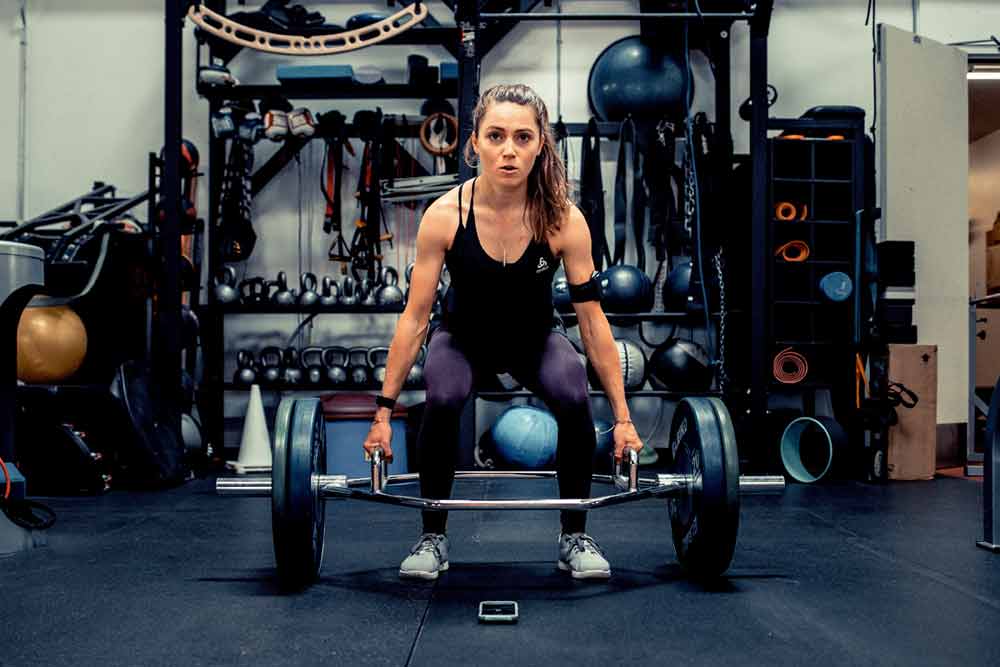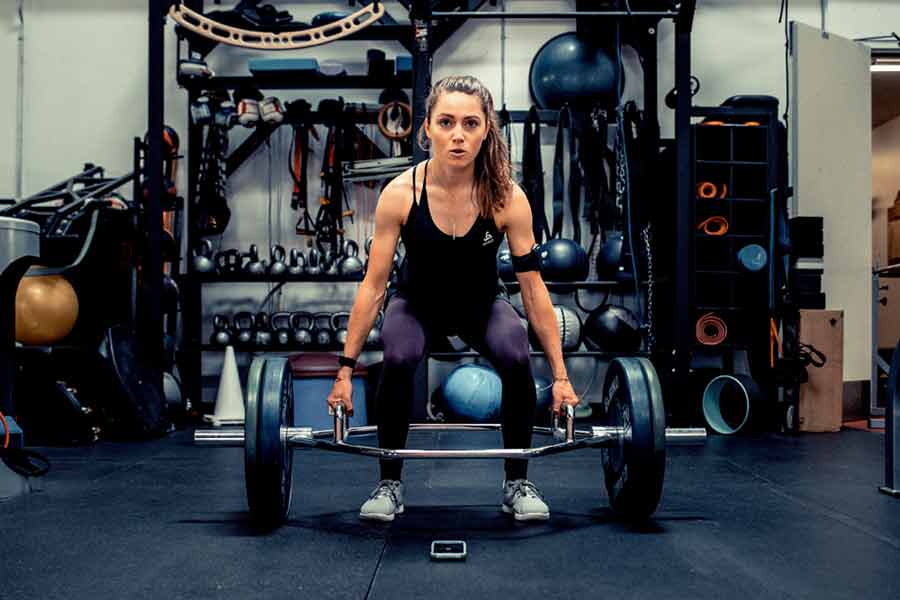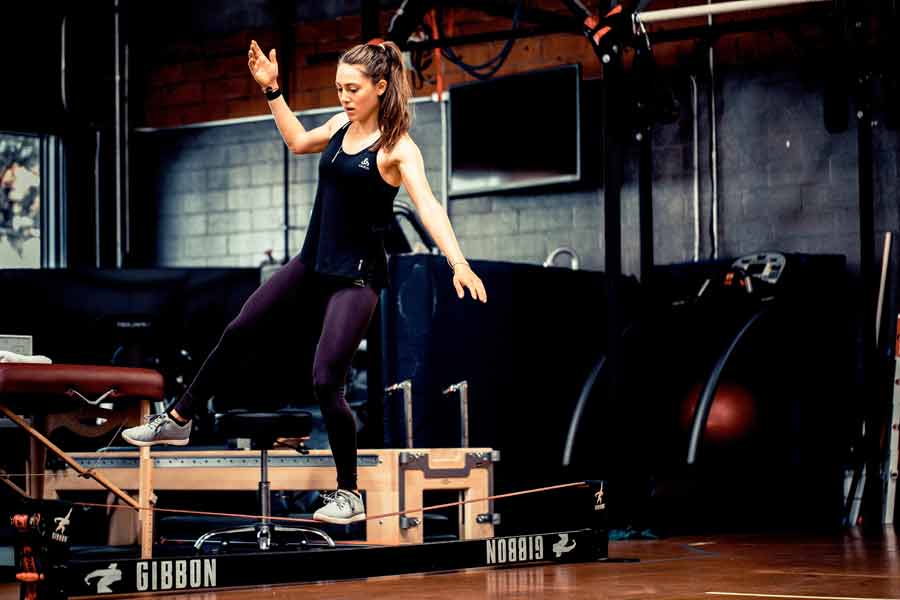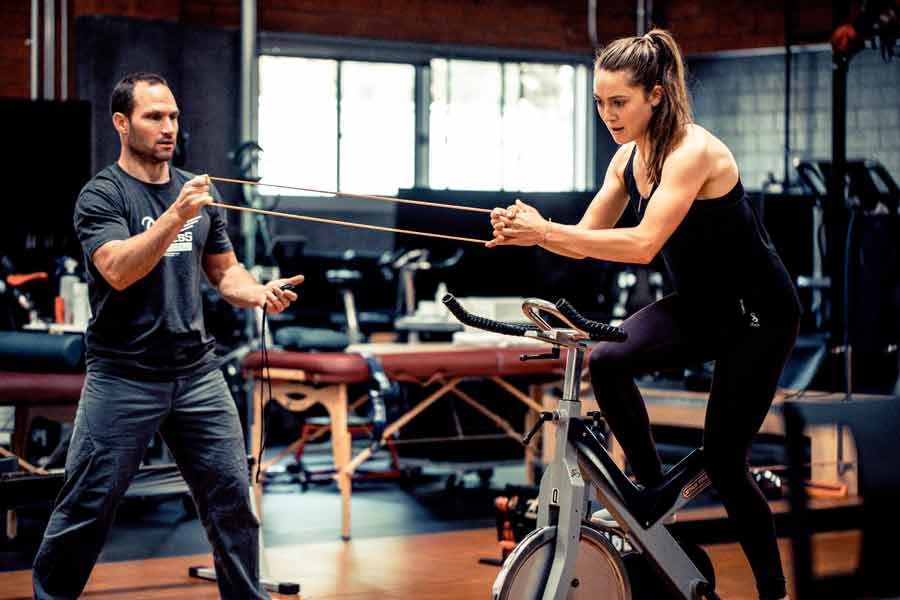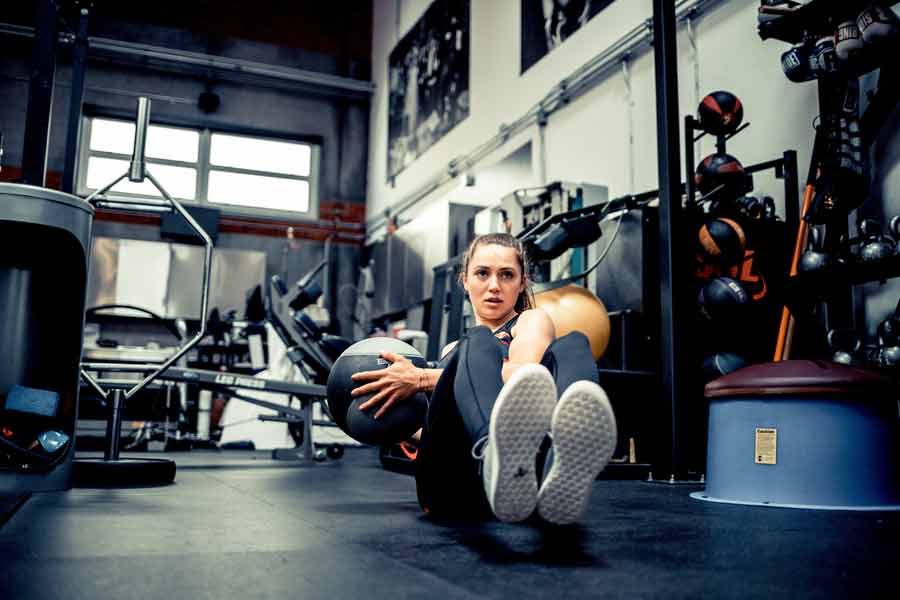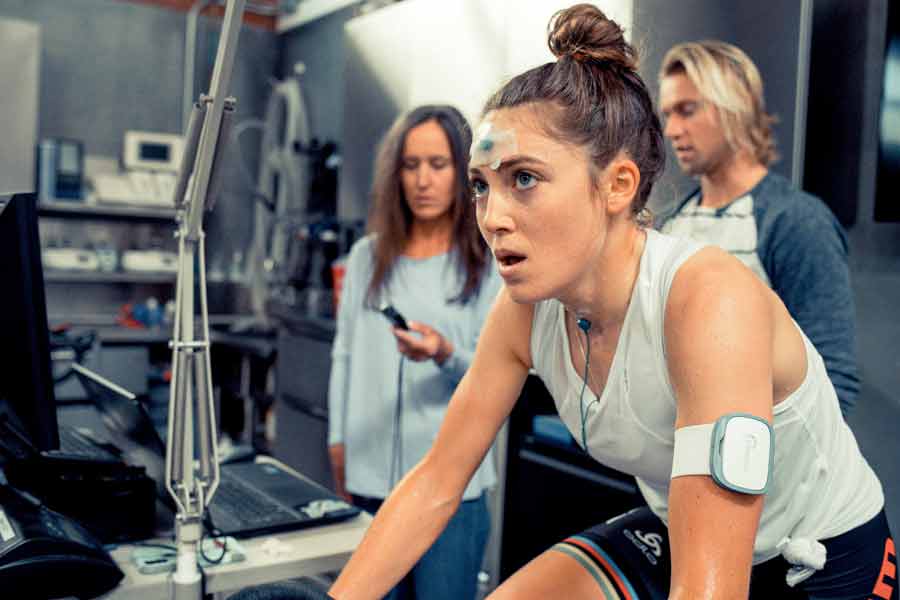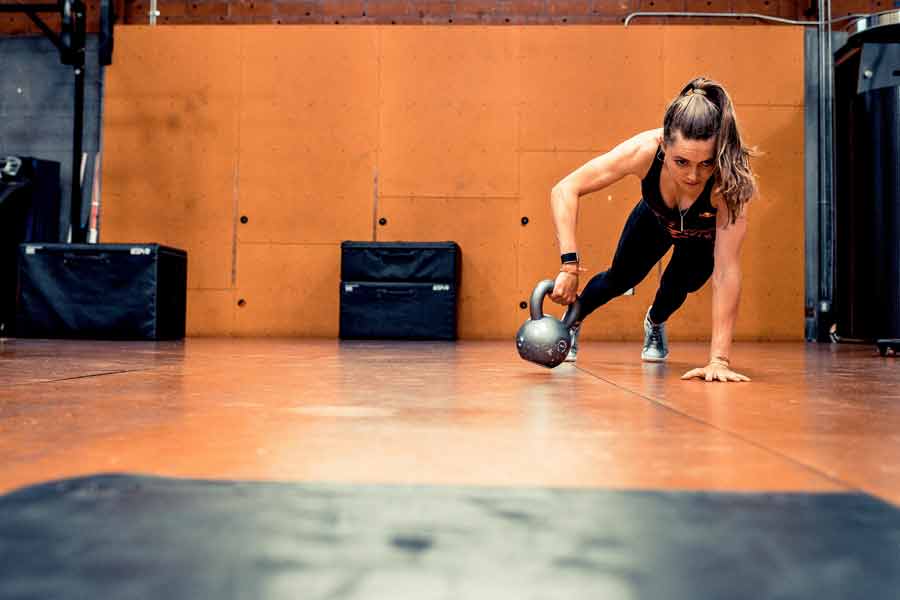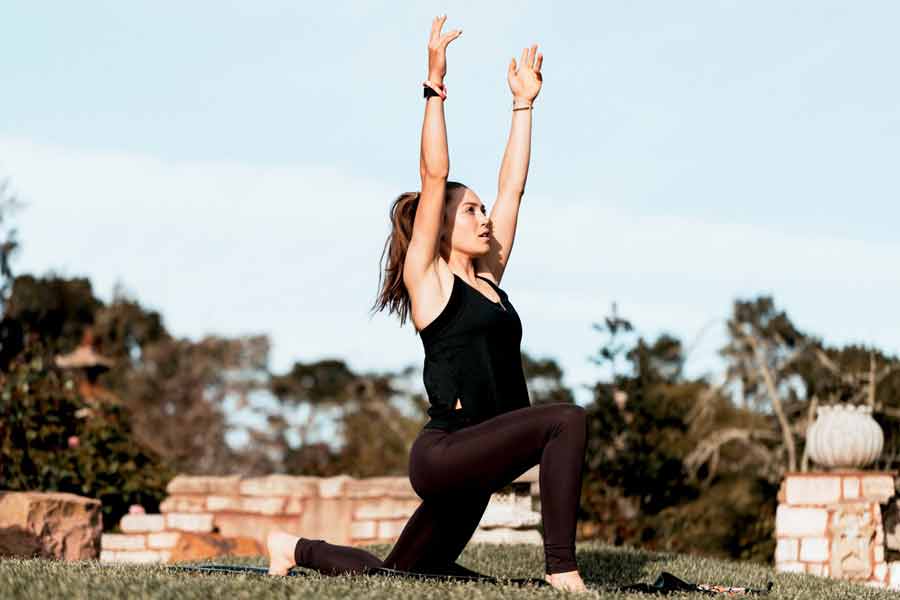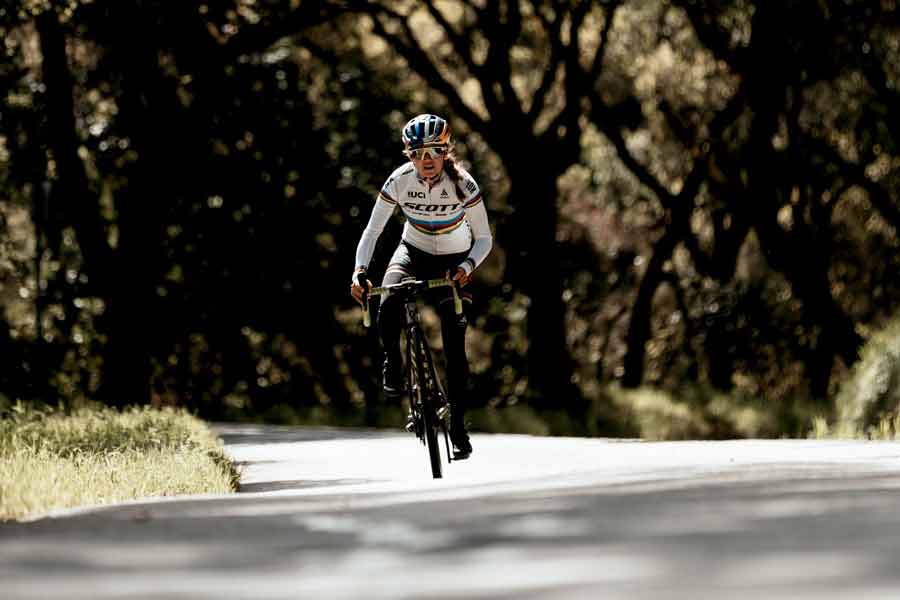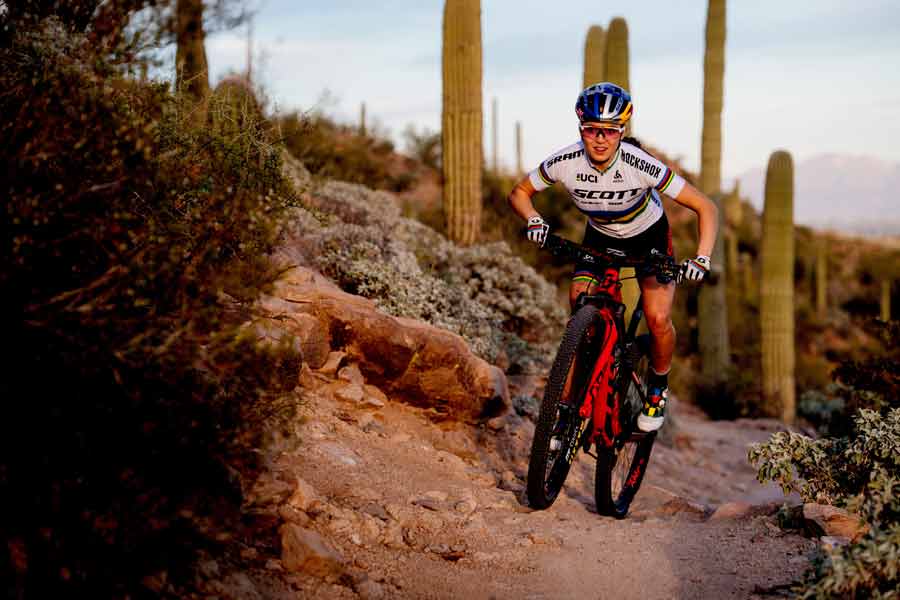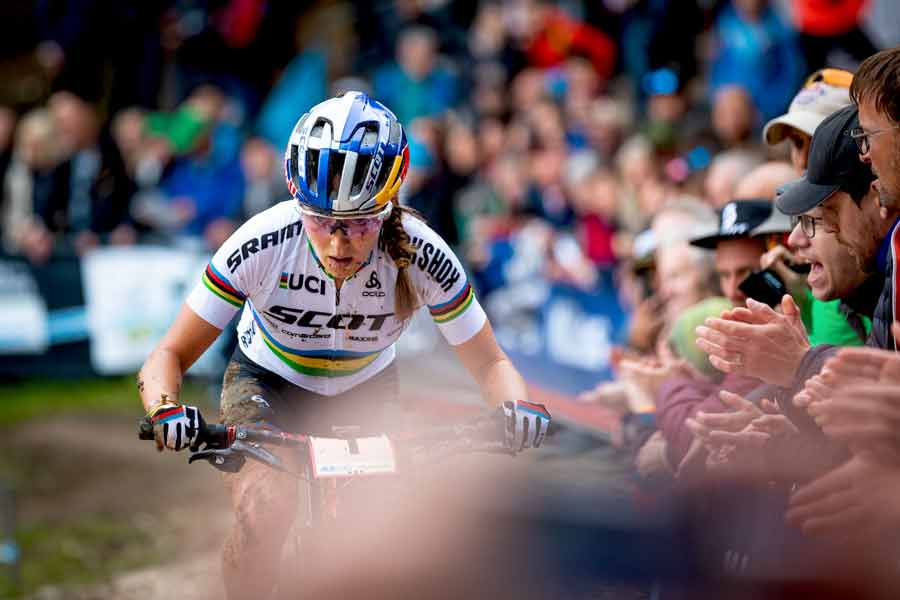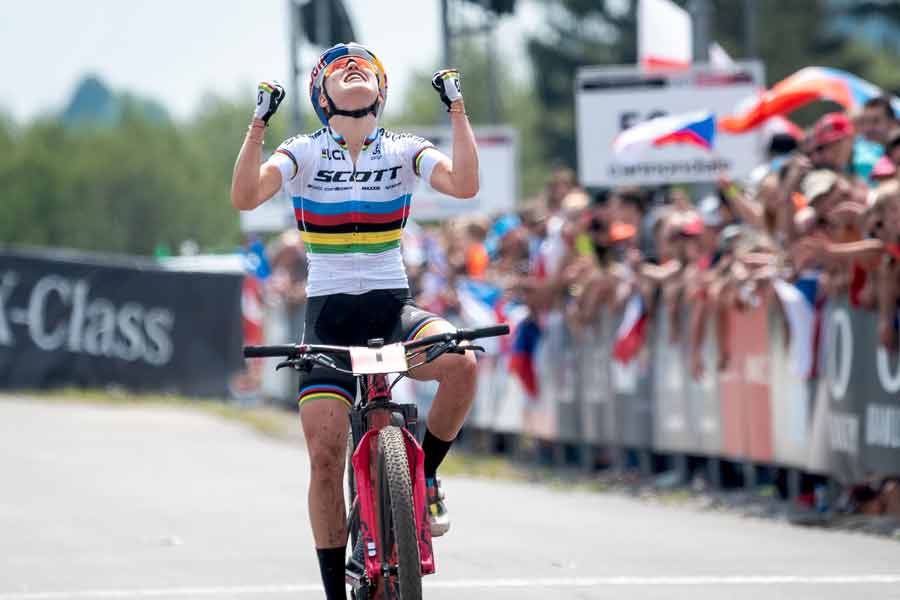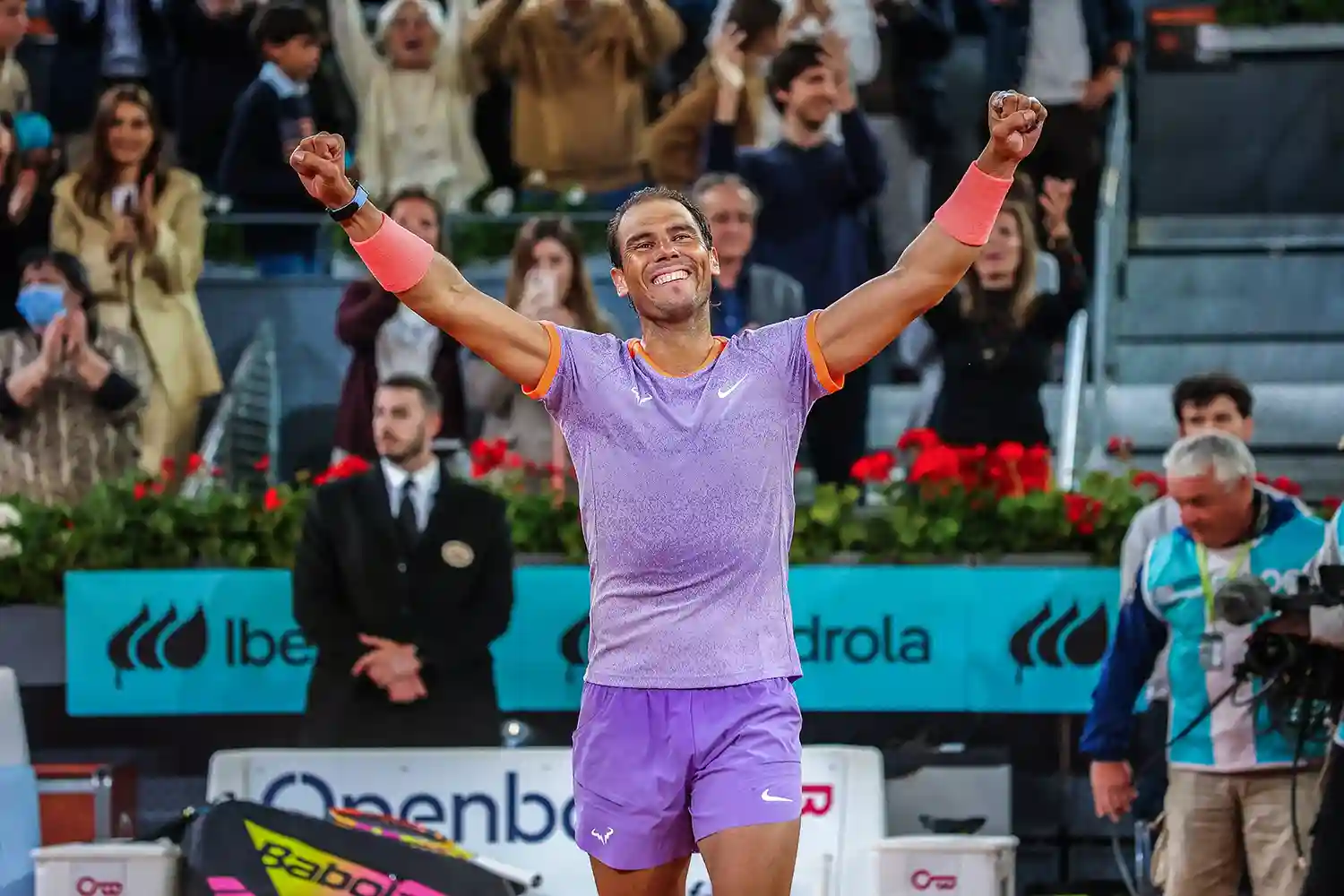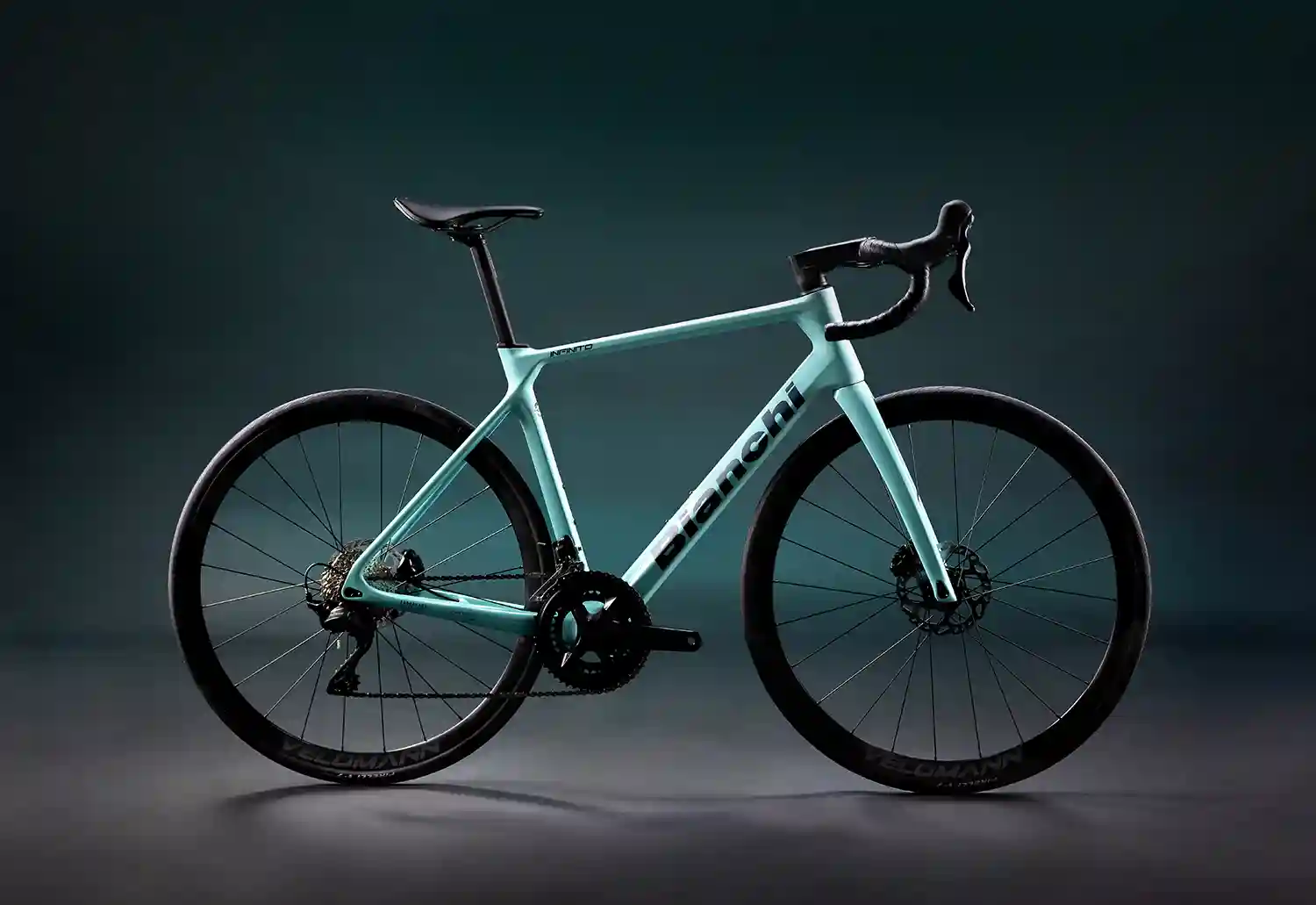Scott-Sram MTB Racing Team lets us look behind the scenes for once and gives us an insight into the varied and hard training of MTB world champion Kate Courtney. Under the slogan "no train, no gain" appeared the documentary of the 2nd episode about Kate Courtney's rise to success.
What does it take to become a world champion? In Episode 2 of Rising, we follow Kate Courtney off the track to find out what it takes to be the fastest female mountain biker in the world.
"I think hard work is one of the most important factors in making progress.... That's always been something I've prided myself on: really being willing to do whatever it takes."
Strength training
Mastering the competition in elite mountain biking requires more than long days on the bike. It's about training that makes you ready to perform in whatever circumstances arise on race day. That means designing a program that is dynamic and puts you in new situations that challenge your mind and body.
"I work with a strength coach. We've developed a program that's really specific and puts me in different positions so I have better situational awareness, coordination, strength and performance in all circumstances."
What is something important about bike training that you think most people underestimate?
People underestimate regeneration! I'm just as serious about my recovery as I am about my training and I think it makes a big difference. If you can recover between sessions, you are able to approach the following workout much harder overall. You also have a much higher chance of avoiding illness and injury.
Mental power
Mental strength is perhaps the most important tool of all, but undoubtedly also the most challenging. Yoga and meditation are important pieces of the training puzzle that allow Kate to keep her focus clear and concentrated on race days.
"In elite sport, only nuances separate the best when it comes to physical fitness. Being able to clear your head on race day and have a really clear plan and make the right decisions, on the other hand, can make a big difference."
Road versus trail
Riding on the road with her Contessa Spark RC 900 or SCOTT Addict allows Kate to consistently train intervals, maximizing her fatigue resistance and efficiency. This gives her the power she needs to go all out on both a technical root section or finish sprint.
Race
Race day. Everything in the life of a professional is geared toward that. Part of the challenge is to put in everything you can, that is, to train hard. The second part is based on your own confidence that what you put in is enough to be ready. Kate undoubtedly works extremely hard, with maximum dedication and determination. But it's on race day that the true test comes. Winning the first two World Cups in 2019 proved that Kate, who is only 23, has everything it takes to become a very big champion.
"I think that real trust is based on experience. I store all that experience in my 'confidence bank,' and call it up when it matters. No matter what, I can achieve something great today, whether it's finishing after a defect or coming back from setbacks in a race I might have already checked off. I think those kinds of moments are always great personal victories because they reflect hard work - that's what the goal is on race day."
Questions and answers
What does a typical training week look like?
I typically bike every day and spend 2-3 days a week in the gym. My rides often include a series of intervals and are done on the MTB or road bike, while my double days tend to have slightly shorter rides. I ride between 15-25 hours per week and spend about 3-6 hours in the gym. Apart from that, I spend a lot of time doing yoga and stretching; I give special importance to recovery. Because you can only train as hard as you can recover!
If you could suggest three workouts to a friend to improve their biking, what would they be?
For those just starting out, my biggest advice is to simply spend more time on the bike and only then identify specific skills you want to hone. While you can train more specifically over time through intervals, time in the gym, etc., the most valuable thing you can do as a beginner or intermediate rider is to simply ride longer distances on the bike.
Outside of the extra volume, I highly recommend working on core fitness (not just the usual strength training for legs, arms, etc.!) as well as making sure you have a good stretching and recovery routine. Many of the workouts I do in the gym and for recovery are for injury prevention and help me stay strong and healthy while pushing my body over a long period of time.

